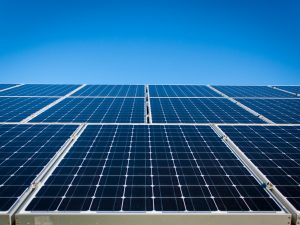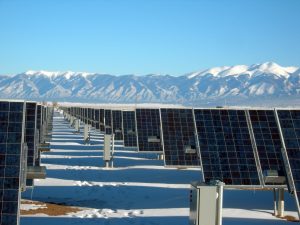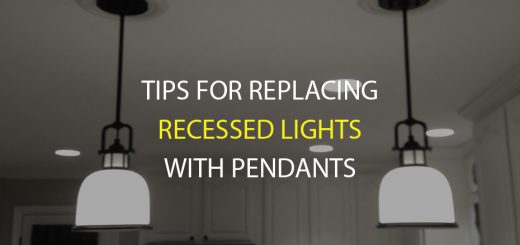Is solar energy suistainable?
Solar energy is considered a sustainable energy and is inherently more sustainable than any other form of energy. Solar panels are utilized in harnessing the Sun’s energy. By absolving sunlight, they convert the Sun’s energy into electrical energy which can be used to power virtually any equipment. But like any form of energy, there are both benefits and also drawbacks that hamper its development.
Solar energy is a free and renewable source of energy that is sustainable and totally unlimited. Solar energy does not propagate pollution: unlike fossil fuels, it does not emit greenhouse gases while converting solar energy into electrical energy. Studies have shown that 30 – 50 minutes of the energy in the light of the Sun that reaches the Earth is equivalent to the amount of electrical energy used on the planet in a year’s time. Amazing, right?
What makes a form of energy sustainable?
 According to the United Nations, Sustainability means “meeting the needs of the present without compromising the ability of future generations to meet their own needs.” Solar energy conforms to this broadly accepted definition of sustainability: The sun’s energy can be used indefinitely without hampering its future availability. The sun is, in fact, the most important source of renewable energy.
According to the United Nations, Sustainability means “meeting the needs of the present without compromising the ability of future generations to meet their own needs.” Solar energy conforms to this broadly accepted definition of sustainability: The sun’s energy can be used indefinitely without hampering its future availability. The sun is, in fact, the most important source of renewable energy.
In Environmental Science, Sustainability is the inherent quality of not being harmful to the environment or depleting natural resources and thereby supporting long-term ecological balance. Therefore, Energy is sustainable if it is obtained from sources that are inexhaustible i.e. Nature. Apart from Solar Energy, other sustainable energy sources include wind, biomass, geothermal and hydro, all of which occur naturally too.
Since the Sun is expected to continue shining for several million years, it is safe to classify solar energy as a sustainable power supply. However, there is a challenge: How to drive down the cost of manufacturing solar panels to a level where it is economically sustainable.
Major Benefits
Renewable
Solar energy is considered a renewable resource, as opposed to non-renewable energy sources, such as fossil fuels, which are finite. The Sun emits enough solar energy to provide for all the energy needs of the planet, even if the Earth’s population continues to grow and consume more energy. It can be harnessed in most areas of the world and is available every day. It is basically impossible to run out of solar energy: unlike some of the other sources of energy, solar energy will be available for use as long as we have the Sun, which, I reckon, is a very long time.
Non-pollutant
Unlike fossil fuels, solar energy doesn’t emit any greenhouse gases which deteriorates the ozone layer and put the earth at risk — Solar panels absorb the sun rays to produce clean energy.
Numerous Applications
Solar energy can be used for a plethora of purposes. From generating electricity and heat to producing electricity in localities without access to the electricity to distilling water in areas with limited clean water supplies to powering satellites in space — the list is endless. Solar energy can also be integrated into the materials used for buildings, which makes them blend.
Low Maintenance Costs
As it stands, solar energy systems do not require a lot of maintenance. You only need to keep them relatively clean, and since there are a no moving parts, there is no wear and tear. The inverter, however, needs to be changed after some years because it is continuously working to convert solar energy into electricity and heat. The cables also need maintenance to ensure your solar power system runs at maximum efficiency.
Reduces Electricity Bills
Since you will be meeting some of your energy needs with the electricity your solar system has generated, your energy bills will drop. However, your savings will be determined by your heat usage. You will also be able to generate more electricity than you use. If your solar panel system is connected to the grid, the surplus can be exported back to the grid and you will receive bonus payments for that amount.
Major Drawbacks
High Costs
The initial cost of purchasing a solar system is fairly high. This is due to the fact that it is not yet economically sustainable: its production and installation are fairly expensive for the average citizen. Nevertheless, solar technologies are constantly developing, it is expected that prices will become more affordable in the future.
Takes a Lot of Space
Solar panels usually need a lot of space and most roofs aren’t actually big enough to fit the desired panels that would meet the need. The more electricity you want to produce, the more solar panels you will need to install, as you want to collect as much sunlight as you possibly can.
Dependent on availability of Sunlight
 In areas with low sunlight, solar panels can be of limited use and quite ineffective. Solar energy can, however, be absolved by solar panels during cloudy and rainy days, but its efficiency is quite low. Solar panels depend mainly on sunlight to produce solar energy.
In areas with low sunlight, solar panels can be of limited use and quite ineffective. Solar energy can, however, be absolved by solar panels during cloudy and rainy days, but its efficiency is quite low. Solar panels depend mainly on sunlight to produce solar energy.
Solar Energy Storage Is Expensive
Solar energy has to be used right away, or it can be stored in large batteries. Due to the fact that Solar Systems cannot be collected at night, batteries are a necessary addition. The prices of these batteries are quite high, as the materials used in their production are expensive.
Solar energy itself is sustainable, but harnessing that energy is not completely void of any drawbacks and some of these affect its degree of sustainability. Also, some of the materials needed to make solar panels are not sustainable. In the manufacture of solar cells, Selenium, which is a rare mineral, and other non-renewable materials are used: these raw materials can be exhausted if manufacturers continue to extract and use them at an accelerated speed. Hopefully, this drawback is likely to stop in the nearest future with advances in technology that allow solar panels to be manufactured with more commonly occurring or renewable raw materials.
In retrospect, these disadvantages pale in comparison to the benefits of solar power as a sustainable energy source. The benefits outweigh the drawbacks if analyzed critically.
The Bottom Line
As solar technology continues to advance, albeit, at a lackluster speed, it is expected that at some point solar energy will become more economically effective than non-renewable energy sources. As we deplete our non-renewable sources of energy, their prices are bound to rise and we would, at some point, be forced to turn fully to the only remaining solution — renewable energy. It goes without saying: solar energy is the most reliable form of renewable energy.
But this begs the question: Will solar energy still be sustainable when the whole world turns to it?



